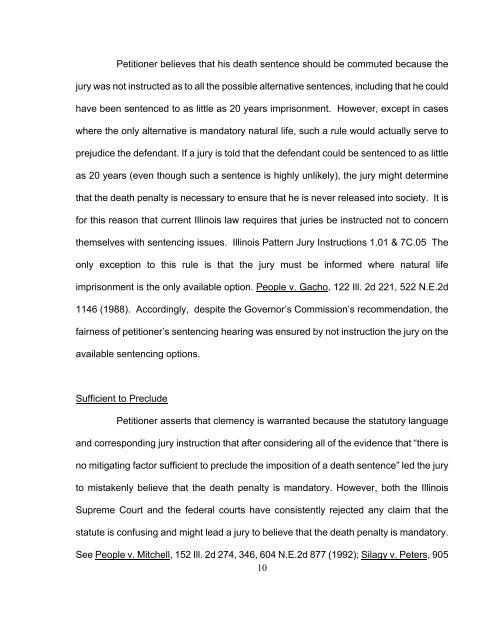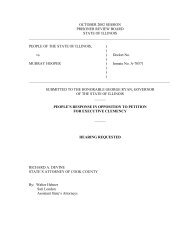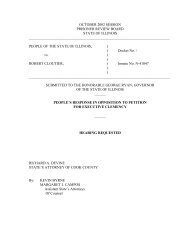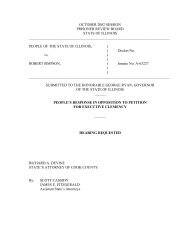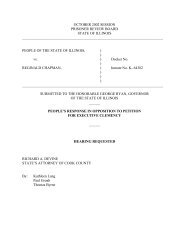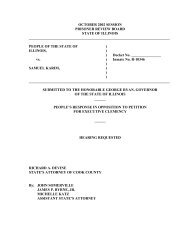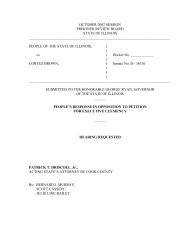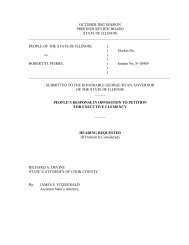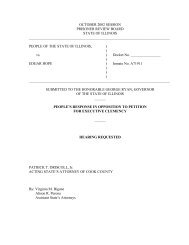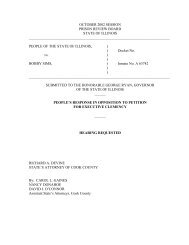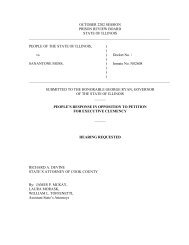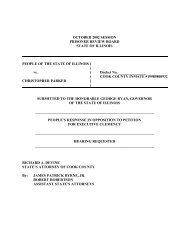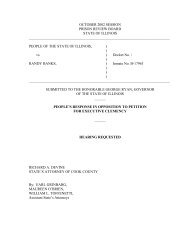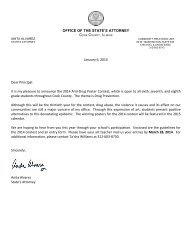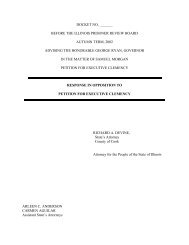Richard Morris - Cook County State's Attorney
Richard Morris - Cook County State's Attorney
Richard Morris - Cook County State's Attorney
You also want an ePaper? Increase the reach of your titles
YUMPU automatically turns print PDFs into web optimized ePapers that Google loves.
Petitioner believes that his death sentence should be commuted because the<br />
jury was not instructed as to all the possible alternative sentences, including that he could<br />
have been sentenced to as little as 20 years imprisonment. However, except in cases<br />
where the only alternative is mandatory natural life, such a rule would actually serve to<br />
prejudice the defendant. If a jury is told that the defendant could be sentenced to as little<br />
as 20 years (even though such a sentence is highly unlikely), the jury might determine<br />
that the death penalty is necessary to ensure that he is never released into society. It is<br />
for this reason that current Illinois law requires that juries be instructed not to concern<br />
themselves with sentencing issues. Illinois Pattern Jury Instructions 1.01 & 7C.05 The<br />
only exception to this rule is that the jury must be informed where natural life<br />
imprisonment is the only available option. People v. Gacho, 122 Ill. 2d 221, 522 N.E.2d<br />
1146 (1988). Accordingly, despite the Governor’s Commission’s recommendation, the<br />
fairness of petitioner’s sentencing hearing was ensured by not instruction the jury on the<br />
available sentencing options.<br />
Sufficient to Preclude<br />
Petitioner asserts that clemency is warranted because the statutory language<br />
and corresponding jury instruction that after considering all of the evidence that “there is<br />
no mitigating factor sufficient to preclude the imposition of a death sentence” led the jury<br />
to mistakenly believe that the death penalty is mandatory. However, both the Illinois<br />
Supreme Court and the federal courts have consistently rejected any claim that the<br />
statute is confusing and might lead a jury to believe that the death penalty is mandatory.<br />
See People v. Mitchell, 152 Ill. 2d 274, 346, 604 N.E.2d 877 (1992); Silagy v. Peters, 905<br />
10


